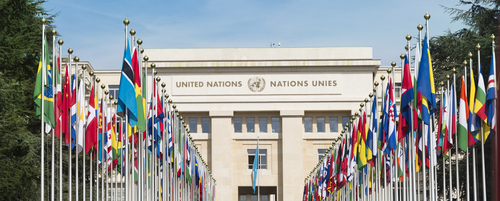
Mediation in the spotlight
20 Mar, 2023 - Dispute resolution | by Grosvenor LawGrosvenor Law commercial litigation partner Richard Coopey considers the impact of the UK Government’s recent decision to proceed to ratify the Singapore Convention on Mediation.
In March 2023, the UK Government set out its response to the United Nations Convention on International Settlement Agreements Resulting from Mediation (New York, 2018) (known as the “Singapore Convention on Mediation” and referred to here as the “Singapore Convention”). In short, the Government has indicated that, in light of mostly positive responses to that consultation, it intends for the UK to become a party to the Singapore Convention and to incorporate it into domestic law.
Put simply, the Singapore Convention facilitates the enforcement of settlement agreements which have been entered into by parties to international disputes following a mediation. Unusually, the Singapore Convention is not reciprocal, meaning that UK settlement agreements are already enforceable in the countries which have ratified the treaty (subject to the specifics of the legislation incorporating the treaty into domestic law). Ratification of the Singapore Convention and its incorporation into UK law will, however, mean that settlement agreements in international disputes which result from mediation will become enforceable in the UK under the terms of the Singapore Convention, regardless of whether they originate in a country which has ratified the treaty itself.
There are a number of thorny legal issues that need to be addressed in how precisely the terms of the Singapore Convention are incorporated into domestic law, three of which will likely see particular focus from the legal profession as the Government begins the process of integrating the Singapore Convention into UK law:
- There is significant ambiguity created by the Singapore Convention depending upon the extent to which an enforcing Court will engage with a dispute over the interpretation of the settlement agreement. The Convention provides for agreements to be enforced without substantive review, but it is easy to see circumstances where a Court is asked to enforce an agreement in a manner which appears, prima facie, inconsistent with its terms. Some critical analysis is, therefore, essential.
- Settlement agreements, almost always, contain confidentiality provisions. There may be circumstances where these provisions will need to be side-stepped to allow the Court to consider events during the mediation (for example, when carrying out any exercise to construe the agreement).
- Careful consideration will be needed regarding how to determine whether the settlement agreement “resulted” from a mediation. Whilst some mediations conclude with lawyers huddled over draft documents before the parties leave the room, it is just as, if not more, common for the agreement itself to be reduced to writing in the days and weeks following the mediation to allow for careful drafting of any technical legal points, or to allow for certain corporate governance steps to be completed. It may be challenging to draw a clear line in this regard, but any uncertainty is not desirable.
Whilst the nuts and bolts of implementation will occupy parliamentary draftsmen and draftswomen, as well as the legal profession, there is a clear statement made by the decision to ratify the treaty to the wider legal and business community. The key takeaway is that the UK is a “pro-mediation” jurisdiction, with the UK government intending to send “a clear signal to our international partners that the UK is committed to maintaining and strengthening its position as a centre for dispute resolution and to promote the UK’s flourishing legal and mediation sectors”.
The English Civil Procedure Rules have encouraged parties to engage in mediation in domestic disputes for some time, and ratification of the Singapore Convention is a further statement that the UK is a jurisdiction which encourages parties to settle their disputes by way of mediation, rather than by resorting to litigation.
Mediation can be quicker and cheaper than litigation, as well as having the benefit of a confidential process that can be useful to take the heat out of a dispute. Using an independent third party to broker a solution can be particularly helpful in circumstances where the parties may hold out some hope of maintaining an ongoing business relationship once matters are resolved.
At Grosvenor Law, we have considerable experience in managing mediation for our clients, where it is an appropriate mechanism to resolve their disputes. Whilst never afraid to pursue matters through to trial, we never lose sight of the fact that litigation is a means, not an end, and always focus on securing the best result for the client, however that can be achieved.
Richard Coopey specialises in complex cross-border disputes, especially shareholder and M&A disputes, as well as contentious trust matters acting both for beneficiaries and trustees and disputes arising out of lending secured on residential and commercial property in England and overseas.
Richard has experience of arbitrations under most major institutional rules, as well as in the English Courts and of matters connected to the major common law offshore jurisdictions including in the Caribbean and the Channel Islands. Richard is a solicitor-advocate and sits as a Deputy District Judge.
Richard can be contacted on richard.coopey@grosvenorlaw.com

